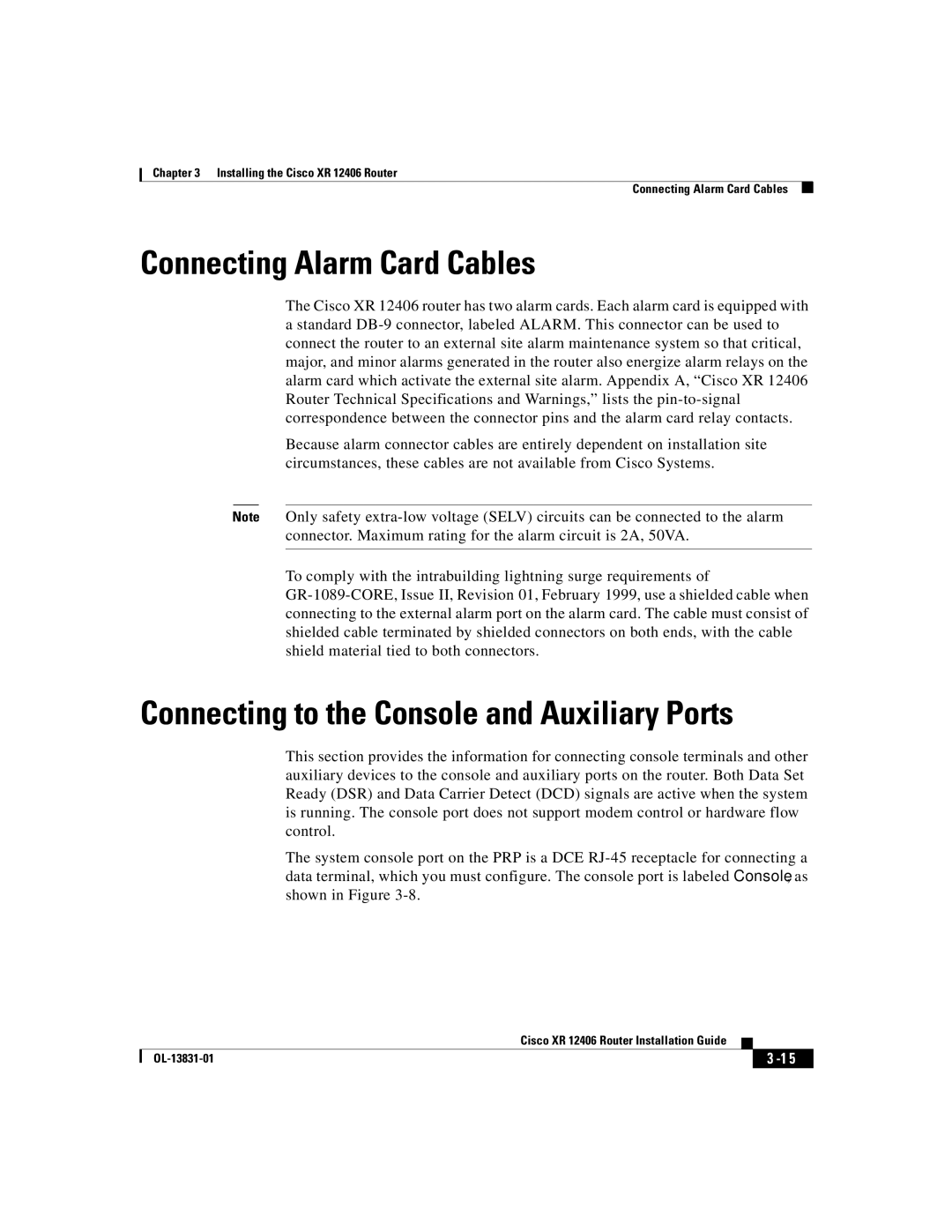Chapter 3 Installing the Cisco XR 12406 Router
Connecting Alarm Card Cables
The Cisco XR 12406 router has two alarm cards. Each alarm card is equipped with a standard DB-9 connector, labeled ALARM. This connector can be used to connect the router to an external site alarm maintenance system so that critical, major, and minor alarms generated in the router also energize alarm relays on the alarm card which activate the external site alarm. Appendix A, “Cisco XR 12406 Router Technical Specifications and Warnings,” lists the pin-to-signal correspondence between the connector pins and the alarm card relay contacts.
Because alarm connector cables are entirely dependent on installation site circumstances, these cables are not available from Cisco Systems.
Note Only safety extra-low voltage (SELV) circuits can be connected to the alarm connector. Maximum rating for the alarm circuit is 2A, 50VA.
To comply with the intrabuilding lightning surge requirements of GR-1089-CORE, Issue II, Revision 01, February 1999, use a shielded cable when connecting to the external alarm port on the alarm card. The cable must consist of shielded cable terminated by shielded connectors on both ends, with the cable shield material tied to both connectors.
Connecting to the Console and Auxiliary Ports
This section provides the information for connecting console terminals and other auxiliary devices to the console and auxiliary ports on the router. Both Data Set Ready (DSR) and Data Carrier Detect (DCD) signals are active when the system is running. The console port does not support modem control or hardware flow control.
The system console port on the PRP is a DCE RJ-45 receptacle for connecting a data terminal, which you must configure. The console port is labeled Console, as shown in Figure 3-8.
| | Cisco XR 12406 Router Installation Guide | | |
| | |
| OL-13831-01 | | | 3-15 |
| | |

